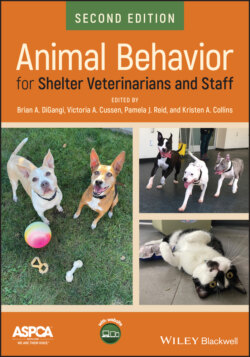Читать книгу Animal Behavior for Shelter Veterinarians and Staff - Группа авторов - Страница 10
Foreword
ОглавлениеThe field of applied shelter animal welfare is undergoing rapid change, and it is an exciting time to witness the progress. Since we edited the first edition of Animal Behavior for Shelter Veterinarians and Staff, several developments drove rapid advancement in the field. In 2015, the first shelter medicine veterinary specialists were certified while we were writing the first edition. Once published, that textbook became required reading for their certification program. Those specialists, along with other scientists, have greatly expanded the literature on applied behavioral health of dogs and cats since then. Additionally, shelters are changing. The number of dogs and cats entering shelters continues to decline, and dogs and cats receiving behavioral interventions have increased. This is likely due to a shift in the population of animals coming into shelters, an increase in available resources (kennel space, staff, etc.) to support that population, as well as what you will see in this textbook: a growing sophistication of programs and processes to support the behavioral health of the shelter population.
The editors in this edition bring incredible depth and expertise to this book. All four editors have decades of experience working in animal welfare. Dr. Brian DiGangi is the Senior Director of Shelter Medicine at the ASPCA. Being dual board certified in Canine and Feline Practice and Shelter Medicine Practice allows him to bring a unique perspective and deep expertise to this body of work. Dr. Victoria Cussen is a Certified Applied Animal Behaviorist and Senior Director of Applied Behavior Research for the ASPCA’s Behavioral Sciences Team. With expertise in comparative cognition and canine behavior, she has a deep understanding of the scientific literature on animal behavior topics. Dr. Pam Reid serves as Vice President of the ASPCA’s Behavioral Sciences Team. She provides specialized behavioral services, expertise in humane animal handling, behavioral evaluations, placement, and euthanasia recommendations for cruelty cases. Kristen Collins is an Associate Certified Applied Animal Behaviorist, and as Vice President of the ASPCA Behavioral Rehabilitation Center, she oversees all programs and operations with drive and compassion. Together, this revision will be an exemplary contribution to the field of shelter medicine and animal behavior.
This textbook will be a key resource for shelter professionals. Like the first edition, this content was written and edited by top leaders in the field. There are several new topics tackled in this text that will have a positive impact on thousands of sheltering professionals, from science‐driven guidance when making decisions regarding behavioral well‐being, to best practices during transportation of animals, to a focus on behavioral health for dogs and cats that are victims of cruelty or disaster, and much more. We look forward to seeing this edition published and used.
Heather Mohan‐Gibbons, RVT, MS, ACAAB Emily Weiss, PhD
